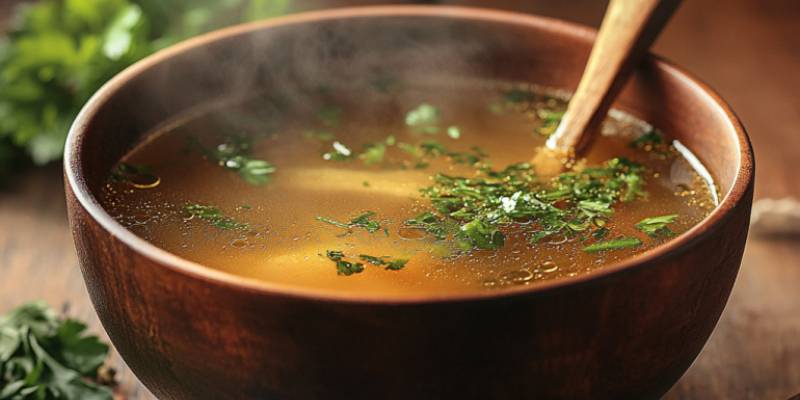Plus, the benefits of improving gut health go way beyond digestion, having a massive impact on overall health. A healthy gut can benefit immunity, mental health and focus, lowering inflammation and even supporting weight loss by controlling appetite and cravings. On the other hand, having an unhealthy gut may lead to a range of health conditions, not just irritable bowel syndrome, known as IBS, or food sensitivities, but potentially even diabetes, heart disease or cancer.
Why is Gut Health Important?
How Food Shapes Your Gut Health
Foods To Support a Healthy Gut
Fibre-Rich Foods
- Whole grains: Brown rice, oats, and quinoa, are full of fibre and provide slow-burning energy.
- Vegetables: Leafy greens like spinach, as well as cruciferous vegetables like broccoli, Brussels sprouts, and root vegetables like carrots are all rich in fibre and important nutrients.
- Fruits: Apples, pears, and berries not only give you fibre but also provide antioxidants that can help to reduce inflammation.
- Legumes: Beans, lentils, and chickpeas are high in fibre and are sources of plant-based protein.
When increasing the amount of fibre in your diet, I recommend to do it slowly to prevent bloating. It’s also a good idea to drink plenty of water to help your body adjust.
Fermented Foods
- Yoghurt: Choose yoghurt with live cultures like Lactobacillus, which add good bacteria to your gut.
- Kefir: A fermented milk drink full of probiotics that can improve digestion and support your immune system.
- Sauerkraut and Kimchi: Both of these are made from fermented vegetables and are packed with gut-friendly bacteria.
- Miso: A fermented soybean paste from Japan that is perfect for adding probiotics to soups and sauces.
Choose unpasteurised versions of fermented foods. Pasteurisation can kill the helpful bacteria you need for a healthy gut.

Prebiotic Foods
- Garlic: Not only does garlic add flavour, but it’s also a powerful prebiotic that helps nourish good gut bacteria.
- Onions: Packed with inulin, a type of prebiotic fibre, onions are a great vegetable to keep your gut bacteria happy.
- Leeks: Another inulin-rich vegetable, leeks are great for supporting your beneficial bacteria.
- Bananas: Especially when they’re slightly green, bananas contain resistant starch, which acts as a prebiotic.
- Asparagus: This vegetable is high in fibre and prebiotics, making it perfect for feeding healthy gut bacteria.
For the best results, combine prebiotics and probiotics. Try adding raw garlic or onions to a salad with a probiotic-rich dressing like yoghurt or kefir.
Omega-3 Rich Foods
- Fatty fish: Salmon, mackerel, sardines, and anchovies are all rich in omega-3s.
- Chia seeds: These tiny seeds are an easy way to add omega-3s to your diet.
- Flaxseeds: Flaxseeds are a great source of both fibre and omega-3s—sprinkle them on porridge oats or salads.
- Walnuts: These nuts are rich in omega-3s, support brain health and reduce inflammation.
For the best results, I recommend eating fatty fish twice a week and regularly including other sources of omega-3s.
Bone Broth
It’s easy to make bone broth at home! Just simmer bones (from beef, chicken, or fish) for 12-24 hours. Add some vegetables and/or herbs for the last hour or so. Store it in the fridge and use it in soups, or drink it warm as a soothing, healing broth.
It’s easy to make bone broth at home! Just simmer bones (from beef, chicken, or fish) for 12-24 hours. Add some vegetables and/or herbs for the last hour or so. Store it in the fridge and use it in soups, or drink it warm as a soothing, healing broth.

Practical Tips for Gut-Healthy Eating
- Consume a varied diet: Your gut microbiome loves variety! Try to eat lots of different vegetables, fruits, legumes and whole grains. The more diverse your diet the happier your gut bacteria will be. Diversity is the key to establishing and maintaining a healthy and diverse microbiome.
- Avoid processed foods: Processed foods, artificial sweeteners, and refined sugars can disrupt the balance of your gut microbiome, potentially causing dysbiosis. Try to stick to the whole, unprocessed foods as much as possible.
- Drink water: Water is important for digestion and keeping your gut lining healthy. Aim for at least 8 glasses of water each day, especially when you’re eating more fibre.
- Limit alcohol and caffeine: Too much alcohol or caffeine irritates the lining of your gut and may disrupt your gut microbiome. Drink them in moderation to keep your gut healthy.
![[Calm Currents] Square Mockups healthy gut food choices checklist mockup image](https://nikkihawkes.com/wp-content/uploads/2024/10/Calm-Currents-Square-Mockups.png)








So helpful, Nikki, especially at this time of year where locally produced fruit and vegetables are on the decline. With the shorter days and cooler temperatures, your blog has reminded me about bone broth, which I love and usually leave overnight in the slow-cooker. You don’t mention lamb or pork bones but can I assume these make bone broths too? I am delighted to see that I am consuming a fairly good selection from your suggestions but then I’ve been following your advice for decades with hugely positive results. Thank you.
Thanks Lisa. Good point about the different bones to make the broth from. I’ve not used pork but I see no reason why not. But yes, beef, lamb, venison, even fish. They all work. But chicken is perhaps the favourite because it has a mild flavour and is quicker to make than most of the others because of the smaller bones.